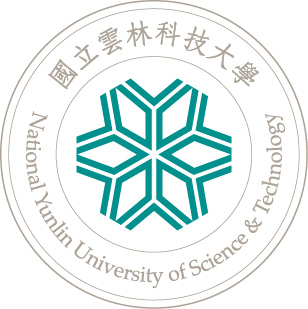Optical films and Interface materials Lab
Research Field
Dr. Balamurugan Rathinam obtained his Doctoral degree from Anna University, Tamilnadu, India, one of the pioneering research institutes in India. Currently, he is working as an Associate Professor in the Department of Chemical and Materials Engineering, at the National Yunlin University of Science and Technology, Douliu City, Taiwan. He has worked as a Post-Doctoral Researcher both in Taiwan and South Korea. His research mainly focused on fluorescent chemosensors and the implementation of passivation strategies for highly efficient perovskite solar cells. All his findings were published in well-reputed journals. In addition to that, he also received funding from the National Science and Technology Council (NSTC) formerly known as the Ministry of Science and Technology (MOST), Taiwan for the development of highly efficient solar cells for the year 2021-2024. He received awards such as the Outstanding Paper award from the Taiwan Institute of Chemical Engineers (TwIChE-2022), and Asia’s Best Researcher award from the International Congress for Research Excellence (ICRE 2024). He is also a member of the “Honorary Advisory Committee of Indian Professors in Taiwan” by the Taiwan Education Center in India (TEC) organized by National Tsing Hua University, Taiwan from 2021 to till date. He is also a member of the Chinese Society of Engineers, the Taiwan Chemical Engineering Society, and the Indian Liquid Crystal Society.
Projects:
- Chiral liquid crystal assisted grain boundary and interface passivation to fabricate high-performance perovskite solar cells (ongoing)
- Interface engineering for high-performance MoS2-modified perovskite solar cells (Completed)
- Curcumin derivative template-assisted sol-gel method for synthesis of MoS2 thin films for high-performance optoelectronic devices (Completed)
Dr. Bala's research lab actively involves (1) the implementation of passivation strategies toward the electron transport layer as well as the absorber to achieve highly stable and efficient solar cells; and (2) the synthesis of fluorescent sensors for the detection of small organic molecules and biogenic amines. He emphasized how the passivation strategies such as solvent engineering, dopant engineering, and interface engineering make significant effort in developing highly stable and efficient solar cells. He attempts to incorporate polyethylene glycol into the electron transport layer, chelated titania into the perovskite layer, and silver nanowire into the hole transport layer and studied their efficiency and other batter components such as short circuit density (Jsc), open circuit voltage (Voc), and fill factor (FF). These findings were published in reputed journals. He also explained the particular interest in developing low-cost, portable fluorescent chemosensors for rapid sensing of small molecules and neurotransmitters. He always addresses the important issues in developing a novel sensor possessing rapid sensing, high selectivity, non-toxic, aqueous solubility with biocompatibility is imperative for biomedical applications. We have all the facilities for the synthesis, fabrication, and characterization of solar cells and sensors.
- Passivation strategies for achieving highly stable and efficient perovskite solar cells
- Development of novel fluorescent sensors for food analysis
- Synthesis of low molecular weight Organogelators and their applications in marine oil spill recovery as well as sensors.
Awards and/or other recognitions received:
- Asia’s Best Researcher award from the International Congress for Research Excellence (ICRE 2024)
- Outstanding Paper award from the Taiwan Institute of Chemical Engineers (TwIChE-2022)
- Honorable Member in “Taiwan Education Center in India (TEC)” organized by National Tsing Hua University
- Topic Editor in “Frontiers in Chemistry”-2023
- Guest Editor for the special issue "Organic Chemistry and Nanotechnology" in Micromachines-MDPI (2022-2023)
- Special achievement exhibition award-111 annual practical project of the Department of Chemical and Materials Engineering
- Awarded “Senior Research Fellowship” for “The Council of Scientific and Industrial Research (CSIR)” in 2008
2004 to 2008: Ph.D., Chemistry, Anna University, Chennai, Tamil Nadu, India
2000-2002: M. Sc. Chemistry, Annamalai University, Tamil Nadu, India
1997-2000; B.Sc. Chemistry, National College, Bharathidasan University, Tiruchirappalli, India
2 Vacancies
Job Description
NIL
Preferred Intern Education Level
Ph.D. Scholars (above 2nd year level)
Master students (final year)
Skill sets or Qualities
- Familiar in synthesis and separation techniques (TLC/Column chromatography)
- Thin-film fabrication
